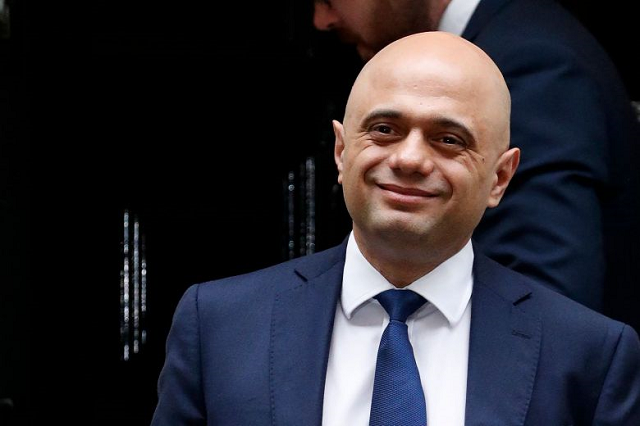British finance minister aims to double UK growth after Brexit
Not willing to champion big manufacturing sectors that want to stick to EU rules

Not willing to champion big manufacturing sectors that want to stick to EU rules. PHOTO: AFP
In an interview with the Financial Times before he travels to meet business leaders in Davos, Switzerland, Javid said Britain would not commit to sticking to EU rules in post-Brexit trade talks - something many businesses want to ease cross-border checks.
"There will not be alignment, we will not be a ruletaker, we will not be in the single market and we will not be in the customs union - and we will do this by the end of the year," he said.
The British Chambers of Commerce (BCC) said businesses were willing to be pragmatic about this approach to Brexit but added that the government needed to be clear about its plans.
"Uncertainty around the extent of divergence risks firms moving their production elsewhere," BCC co-executive director Claire Walker said.
The opposition Labour Party said Javid's plans amounted to right-wing ideology overriding common sense and that jobs in the motor industry and manufacturing were under threat.
Prime Minister Boris Johnson has said there will be no extension to an 11-month window in which he hopes to negotiate a long-term trade agreement with the EU after Britain leaves on Jan. 31, despite the EU saying this is unrealistic.
The Financial Times reported that Javid wanted to boost annual economic growth rates to the 2.75% level seen in the second half of the 20th century through greater investment in skills training and physical infrastructure.
Britain's economy probably grew about 1.3% last year, and the Bank of England estimates it will struggle to grow much faster over the long run due to reduced immigration and greater trade friction after Brexit.
Javid will present his first budget on March 11, and said it would focus on "people and place", part of the Conservative government's efforts to reward traditionally Labour-supporting areas that backed it due to Brexit in December 12's election.



















COMMENTS
Comments are moderated and generally will be posted if they are on-topic and not abusive.
For more information, please see our Comments FAQ